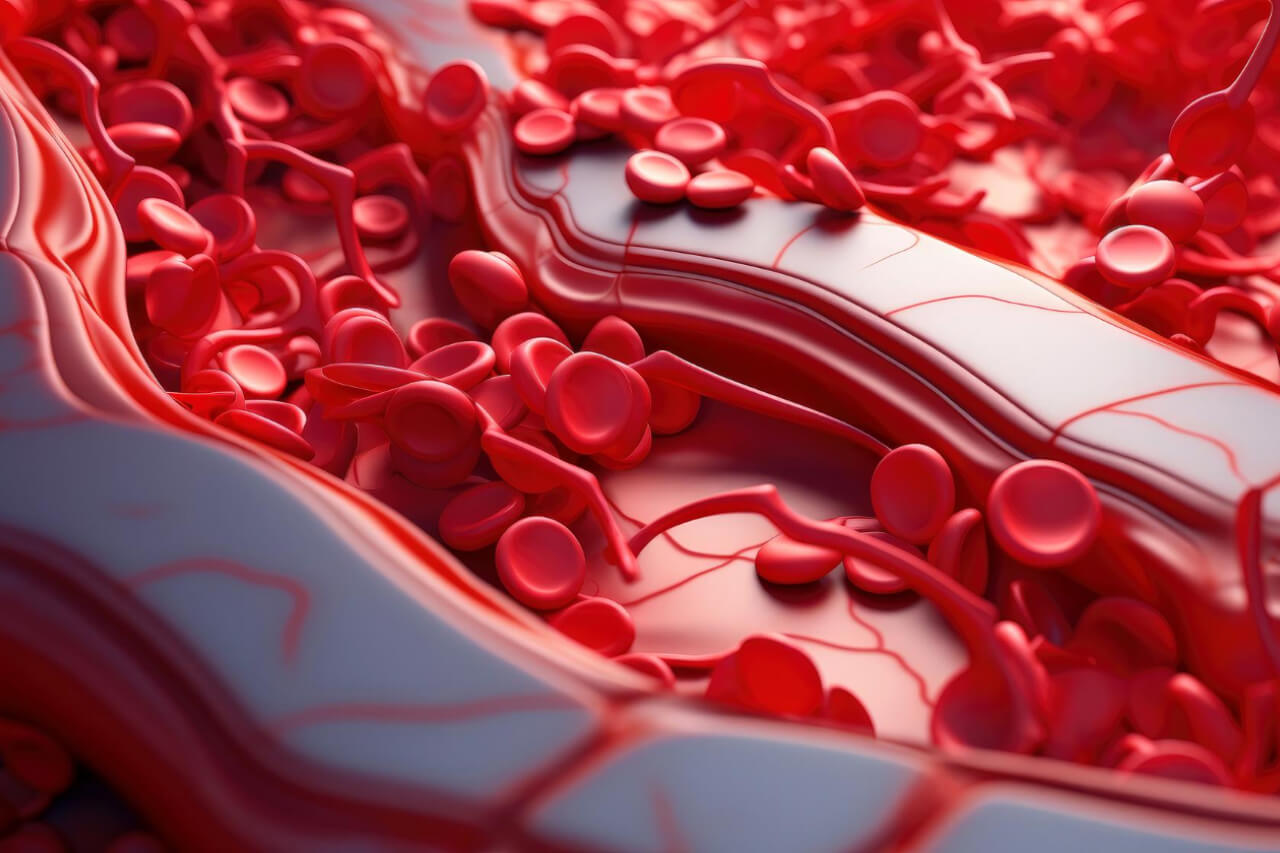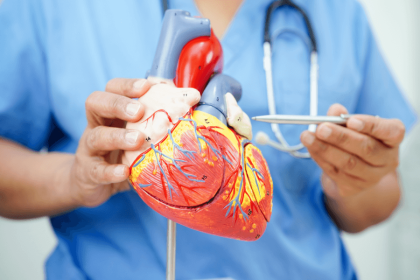Blood vessel health plays a crucial role in maintaining overall well-being. When blood vessels face damage, it can have serious implications for cardiovascular health and other organs. Fortunately, there are effective strategies to prevent blood vessel damage and promote optimal health. In this article, we will discuss valuable tips and lifestyle choices that can help maintain healthy blood vessels, reduce the risk of cardiovascular diseases, and promote overall well-being. Let’s delve into the essential strategies for preserving blood vessel health.
Understanding Blood Vessel Health
Blood vessel health refers to the condition and functionality of the blood vessels responsible for transporting blood throughout the body. These vessels include arteries, capillaries, and veins. The state of blood vessel health significantly impacts cardiovascular health and overall well-being. Preventing blood vessel damage and promoting their health are essential, as damaged blood vessels can lead to serious conditions like atherosclerosis, hypertension, and heart diseases.
Understanding Blood Vessel Abnormalities
Being aware of common blood vessel abnormalities is essential for preventing and managing potential damage. Conditions such as atherosclerosis, aneurysms, and vasculitis can compromise blood vessel health and function. Atherosclerosis is characterized by the buildup of plaque within the arteries, leading to narrowing and reduced blood flow. To prevent atherosclerosis, it’s crucial to maintain a healthy lifestyle, manage cholesterol levels, and avoid smoking.
Aneurysms occur when weak spots in the blood vessel walls balloon out, putting them at risk of rupture. Identifying risk factors such as high blood pressure and taking appropriate measures can help prevent aneurysms. Vasculitis is an inflammation of the blood vessel walls, which can restrict blood flow and lead to organ damage. It’s important to work closely with a healthcare professional for diagnosis and managing vasculitis.
Blood Vessel Damage
It is important to prioritize blood vessel health. As blood vessel damage can significantly impact our health in various ways.
How? Here are some ways blood vessel damage can affect our overall well-being:
- Cardiovascular diseases: Blood vessel damage can increase the risk of developing cardiovascular diseases such as atherosclerosis, coronary artery disease, and peripheral artery disease. These conditions can lead to heart attacks, strokes, and other serious cardiovascular complications.
- Reduced blood flow and oxygen supply: Damaged blood vessels may restrict blood flow and impair the delivery of oxygen and essential nutrients to various organs and tissues in the body. This can result in tissue damage, organ dysfunction, and an increased risk of various health problems.
- High blood pressure: Blood vessel damage can contribute to the development of high blood pressure (hypertension). Damaged blood vessels may become narrow or lose their elasticity, causing an increase in blood pressure. High blood pressure puts added strain on the heart and can lead to cardiovascular complications.
- Impaired organ function: Blood vessel damage can affect specific organs and their functionality. For example, damage to blood vessels in the kidneys can impair their ability to filter waste products from the blood, potentially leading to kidney problems and malfunction.
- Increased risk of blood clots: Damaged blood vessels may disrupt the smooth flow of blood, leading to the formation of blood clots. Blood clots can block blood vessels, causing serious complications such as deep vein thrombosis, pulmonary embolism, or stroke.
- Impaired wound healing: Proper blood flow is crucial for efficient wound healing. Blood vessel damage may slow down the healing process, as it hampers the delivery of oxygen and nutrients to the site of injury.
9 Tips for Preventing Blood Vessel Damage
Adopt a healthy diet
Focus on consuming a balanced diet rich in fruits, vegetables, whole grains, lean proteins, and healthy fats. Avoid processed foods, excessive sodium, and trans fats, which can contribute to blood vessel damage.
Engage in regular exercise
Regular physical activity promotes healthy blood vessels and improves blood circulation. Aim for at least 150 minutes of moderate-intensity aerobic exercise per week, such as brisk walking, jogging, or cycling.
Quit smoking
Smoking damages blood vessels and increases the risk of atherosclerosis and other cardiovascular diseases. Quitting smoking significantly improves blood vessel health and overall well-being.
Manage blood pressure
High blood pressure can damage blood vessel walls over time. Maintain a healthy blood pressure range by following a low-sodium diet, engaging in regular exercise, managing stress, and taking prescribed medications if needed.
Control cholesterol levels
High levels of LDL (bad) cholesterol can contribute to plaque buildup in blood vessels. Incorporate heart-healthy foods like avocados, nuts, fatty fish, and olive oil into your diet and limit the consumption of saturated and trans fats.
Maintain a healthy weight
Excess weight strains blood vessels and increases the risk of hypertension and cardiovascular diseases. Maintain a healthy weight through a combination of regular exercise and a nutritious diet.
Manage stress levels
Chronic stress can elevate blood pressure and contribute to blood vessel damage. Practice stress-management techniques like deep breathing exercises, meditation, yoga, or engaging in hobbies and activities that help you relax.
Limit alcohol consumption
Excessive alcohol intake can contribute to high blood pressure and damage blood vessels. Consume alcohol in moderation, following the recommended guidelines of one drink per day for women and up to two drinks per day for men.
Get regular check-ups
Routine medical check-ups allow for the early detection and management of potential risk factors or underlying conditions that can damage blood vessels. Regular check-ups help monitor blood pressure, cholesterol levels, and overall cardiovascular health, allowing for timely interventions if necessary.
Remember, prevention is key when it comes to blood vessel damage. By implementing these nine tips into your lifestyle, you can protect your blood vessels, reduce the risk of cardiovascular diseases, and promote overall well-being. Prioritize your health and make these positive changes today for a healthier future.
Conclusion
Preserving blood vessel health is crucial for maintaining overall well-being and reducing the risk of cardiovascular diseases. By implementing the nine tips mentioned above, you can take proactive steps to prevent blood vessel damage and promote optimal health.
Adopting a healthy diet, engaging in regular exercise, and quitting smoking are fundamental lifestyle choices that positively impact blood vessel health. Managing blood pressure and cholesterol levels, maintaining a healthy weight, and controlling stress levels also contribute significantly to preserving blood vessels’ integrity.
Regular check-ups and health screenings allow for early detection and intervention, ensuring that any potential risk factors or underlying conditions damaging blood vessels are promptly addressed.
Remember, taking care of your blood vessels means taking care of your heart and overall cardiovascular health. By incorporating these tips into your lifestyle and making conscious choices, you can protect your blood vessels, reduce the risk of cardiovascular diseases, and enhance your overall well-being.
Prioritize your health, make these positive changes today, and enjoy the benefits of healthy blood vessels and a healthier future.
FAQs
What are blood vessels?
Blood vessels are a network of tubes that carry blood throughout the body. They include arteries, veins, and capillaries.
How does blood vessel damage occur?
Blood vessel damage can occur due to factors such as high blood pressure, high cholesterol, smoking, and inflammation. Certain medical conditions like atherosclerosis or vasculitis can also contribute to blood vessel damage.
How can a healthy diet help maintain blood vessel health?
A healthy diet low in processed foods and rich in fruits, vegetables, whole grains, lean proteins, and healthy fats can reduce inflammation, support proper blood flow, and help prevent blood vessel damage.
Why is exercise important for blood vessel health?
Regular exercise helps improve blood circulation, strengthens the heart, and promotes the growth of new blood vessels, all of which contribute to maintaining healthy blood vessels.
Can stress affect blood vessel health?
Yes, chronic stress can elevate blood pressure and contribute to blood vessel damage. Managing stress through techniques like deep breathing, meditation, or engaging in relaxing activities can help promote blood vessel health.
What role does smoking play in blood vessel damage?
Smoking damages blood vessels and contributes to the development of atherosclerosis, increasing the risk of cardiovascular diseases and other related complications.
How can I monitor my blood pressure and cholesterol levels?
Regular check-ups with healthcare professionals allow for blood pressure and cholesterol level measurements. Monitoring these levels helps identify potential risks and take necessary measures to prevent blood vessel damage.





